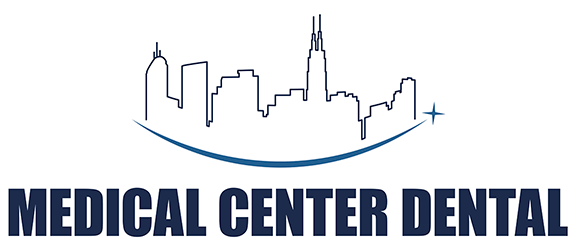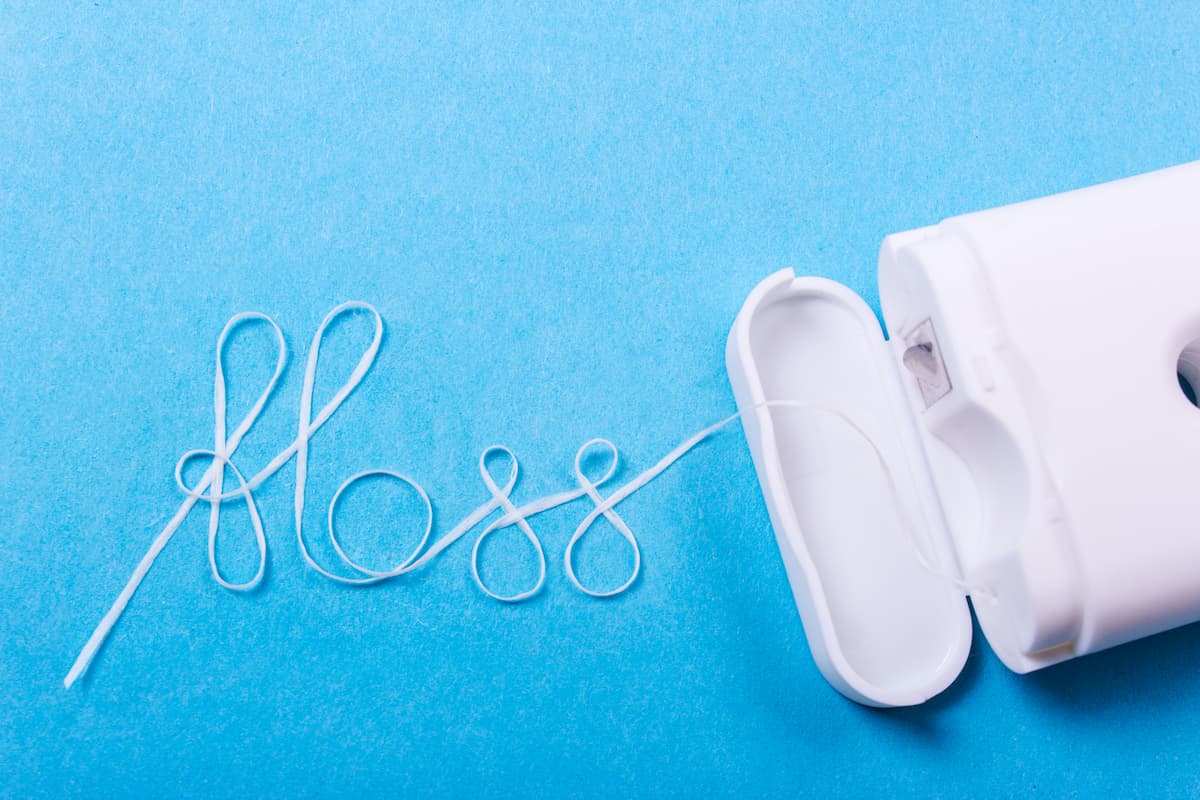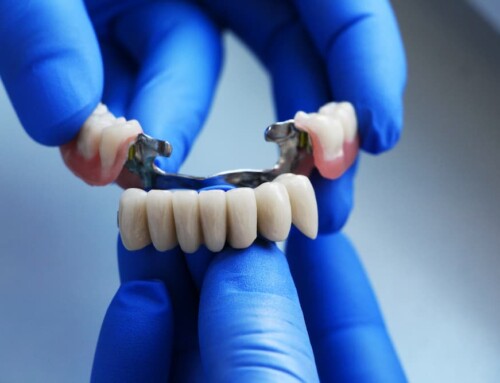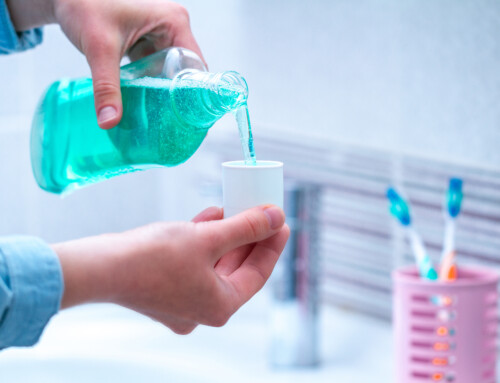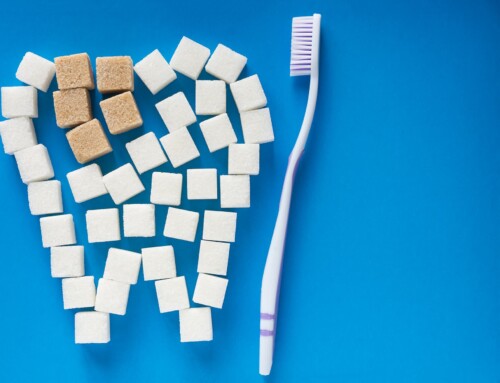As you read this article, you’ll learn about the importance of flossing and the best way to do it:
- Flossing removes plaque that can build up between teeth and cause cavities.
- You should floss once a day, ideally before brushing.
- If you have braces, you may benefit from using floss threaders.
Ingenious Dentistry is dedicated to helping the residents of Houston, TX, keep their smiles looking brilliant, which is why we promote dental health education. For example, we know that flossing is essential to keeping teeth sparkling, yet only 30% of Americans do so. Why is the number so low? Many people find flossing inconvenient and don’t understand why it’s so important.
So, what’s the big deal about flossing? Let’s go over its benefits and proper technique.
Is It Necessary To Floss?
It is absolutely necessary to floss your teeth. When you eat, food can get lodged between your teeth where a toothbrush can’t reach it. Floss is specifically designed to get into those tight spaces.
Dental Health May Be Connected To Heart Health
Did you know that bacteria can enter your mouth and affect other parts of your body? One of these parts is the heart, which can develop an infection if bad bacteria make their way there. Additionally, studies show a correlation between good oral hygiene and a lower risk of heart failure.
Flossing Can Fight Bad Breath
Even if it just stays in your mouth, bad bacteria can cause trouble. Have you ever wondered where bad breath comes from? It’s not necessarily what you ate — it’s the bacteria the food left behind. Mints and breath fresheners can temporarily cover up the problem, but if you want fresh breath every day, you need to brush and floss.
Flossing Prevents Gum Disease
Gum disease can be painful as the gums become inflamed. In the worst-case scenario, you can lose teeth because the disease spreads to the bone supporting your teeth. While the results are fixable, the procedures are expensive and require recovery time.
Flossing Eliminates Plaque
Flossing scrapes away the plaque that accumulates in the spaces between your teeth. No matter how much you try, you can’t reach this plaque with a toothbrush.
You’re Less Likely To Get Cavities
Plaque causes teeth to decay, which results in cavities. By getting rid of plaque build-up, you decrease your risk of cavities.
When Should You Floss?
So, when is the right time to floss? While experts agree that any flossing is better than no flossing, there are more effective times to do it.
Once a Day
Dentists are recommending flossing your teeth once a day. It can be at any time that fits your schedule. Most people floss when they brush just for convenience.
Can you floss more than once daily? Yes, you may want to do so after eating food that frequently gets stuck between teeth, such as popcorn. However, make sure you don’t go overboard. If you floss too frequently, you may irritate your gums. Once a day is enough to keep your teeth clean.
Before Brushing
The most effective time to floss during your oral hygiene routine is before you brush. That way, any loosened bits of food don’t stay in your mouth but get flushed when you brush and rinse.
What Is the Proper Way To Floss?
Flossing has to be easy, right? After all, it’s just pulling thread between your teeth.
Actually, there’s a proper way to floss, and it really matters how you do so. If you don’t floss properly, you can end up missing plaque in the most hard-to-reach places, making them vulnerable to gingivitis.
1. Wrap the Floss Around Your Fingers
If you’re using standard floss, you need between 18 and 24 inches. Wrap one end around the pointer finger of your right hand and the other end around the pointer finger of your left hand, leaving 1 or 2 inches between. Then, pull the floss taut.
2. Floss Between Your Teeth
Floss between your teeth, holding the floss at an angle to rub against each tooth in turn. This will let you scrape away plaque. Make sure you don’t floss your gums, as it won’t do much cleaning and may irritate them. Finally, don’t forget to floss the back of your molars, which is a spot that’s often missed.
3. Use Clean Sections of Floss
As you move from space to space, make sure to use a new, clean portion of floss to ensure you’re not depositing bacteria back into your mouth. By the time you’re done, you should have used most of the length.
Does the Type of Floss You Use Matter?
When you go to buy floss, you’ll notice there are dozens of different brands. There are even some tools that claim to be more effective than regular flossing. Which should you choose?
For most people, standard waxed floss is just fine. However, if you have braces, bridges, or other dental work, you may benefit from using more specialized types.
Waxed Floss
Waxed floss is the standard option and is sold in many stores in Houston, TX. Some waxed dental floss is flavored, with minty flavors being the most common. There are unwaxed options that work just fine, but waxed floss fits between teeth more easily.
Floss Picks
Floss picks are a great option if you want to floss after lunch or just want to keep it on hand. These small picks are good for one use and are easy to keep in a purse or pocket. However, they do have their downsides:
- Use a lot of plastic
- Need multiple picks to floss the entire mouth
- Struggle to clean molars due to plastic handle
Floss Threaders
If you have a bridge or braces, it may be more difficult to fit the floss between your teeth. Floss threaders have additional components that help you floss between and around dental appliances.
What Else Can You Do To Keep Your Teeth Healthy?
Flossing is just one part of maintaining your oral health. If you want to fight bad breath, discolored teeth, and cavities, you also need to brush your teeth and visit your dentist.
Brushing
Dentists recommend brushing your teeth twice a day: once in the morning and once at night. You should brush for at least two minutes and make sure to get both the front and back of your teeth, moving your wrist in gentle, circular motions. When you choose a toothbrush, go for soft bristles to ensure you don’t irritate your gums. While there are other bristle options, soft gets the job done just fine.
Dentist Visits
You should get your teeth cleaned at least every six months. Dentists can spot the plaque you missed and clean away buildup. They can also identify tooth decay, which can cause tooth loss and pain if not addressed early.
How Can You Make an Appointment at Ingenious Dentistry?
Ingenious Dentistry provides a range of dental services to Houston, TX, and the surrounding area. Whether you need a regular cleaning or a cavity filled, we’re here to help. To learn more or make your appointment, visit us online or give us a call at 713-795-5905.
Image Source: ADragan / Shutterstock

